READY TO GET STARTED?
REQUEST A FREE ESTIMATE
Fill out the form below or call (888) 466-7849 for a free, no-obligation estimate.
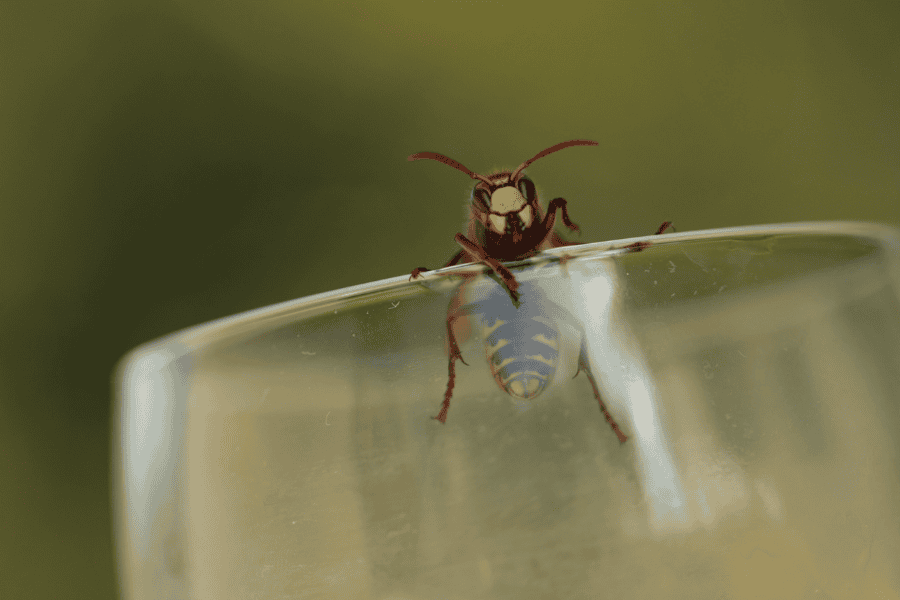
As a restaurant owner or property manager, maintaining a pest-free environment is crucial for the success of your business. Among the most troublesome pests are those that sting, such as wasps, hornets, and bees. These pests pose health risks to your customers and staff, and their presence can tarnish your establishment’s reputation. Understanding the types of stinging pests commonly found around restaurants and knowing how to manage them can help you maintain a safe and welcoming environment.
Conduct routine inspections around your restaurant, focusing on outdoor dining areas, trash bins, and entry points. Look for nests or high activity zones and address them promptly.
Ensure that trash bins are sealed tightly and emptied regularly. Wasps and hornets are attracted to food waste, so maintaining clean waste disposal areas can significantly reduce their presence.
Check for and seal any gaps or cracks in windows, doors, and walls where pests might enter. Installing screens on windows and doors can also help keep these pests out.
Partnering with a professional pest control company ensures a thorough and effective approach to managing stinging pests. These experts can identify potential problems before they escalate and provide tailored solutions to keep your restaurant pest-free.
Encourage customers to cover their drinks and food when dining outside. Provide lids for cups and use containers with tight seals for condiments to minimize attraction to stinging pests.
Keep your landscaping tidy and free of debris. Trim bushes and trees regularly and remove any fallen fruits or flowers that can attract bees and wasps. Consider planting pest-repelling plants like mint or citronella around dining areas.
Maintaining a pest-free restaurant is essential for customer satisfaction and safety. Regular inspections, proper waste management, sealing entry points, and partnering with a professional pest control company are key strategies in keeping these types of stinging pests pests at bay. Give our team a call for a free, no-obligation quote today!
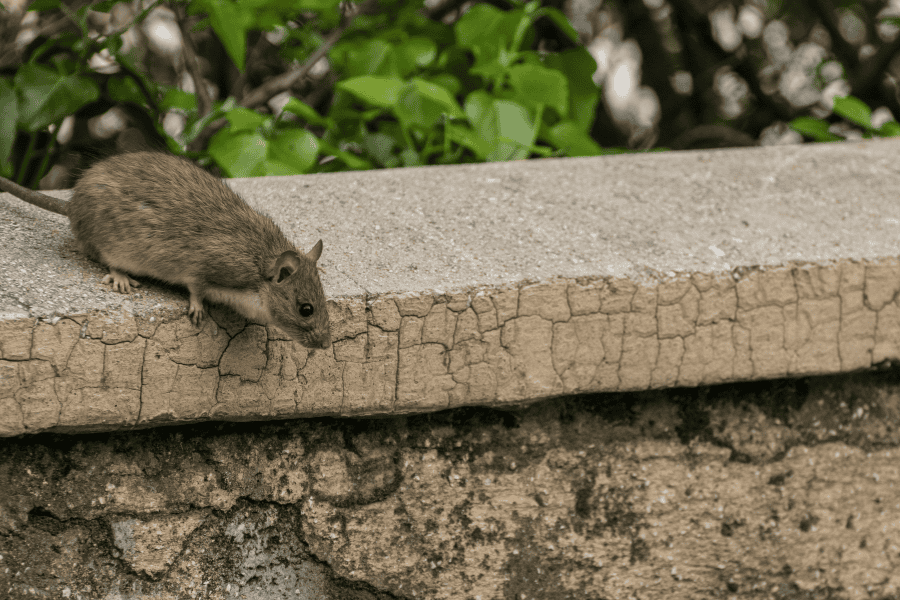
As a business owner, maintaining a clean and reputable environment is paramount. One of the most significant threats to this is rodent infestation. Rats and mice can cause extensive damage to your property, compromise health standards, and tarnish your reputation. Understanding how to protect your business from these unwelcome guests is crucial. Here’s a comprehensive guide to keeping your commercial space rodent-free.
Rats and mice are more than just a nuisance. They pose serious health risks as they carry diseases such as Hantavirus and Salmonella. These pests are also notorious for gnawing through electrical wires, which can lead to fire hazards, and contaminating food supplies, which can result in substantial financial losses and legal implications.
Early detection is key to controlling a rodent problem. Be vigilant for the following signs:
To protect your business from rodents, implement these strategies:
While preventative measures are essential, partnering with a professional commercial pest control company provides an added layer of protection. Experienced pest control specialists can:
Protecting your business from rats and mice is vital for maintaining a clean and reputable establishment. For more information on how to keep your business rodent-free, contact your local pest management team today. Our team of experts is ready to assist you with tailored solutions to meet your specific needs.

Maintaining a pest-free environment is crucial for any business. Pests can damage property and harm reputations. Understanding the importance of proactive measures in ensuring a pest-free business is beneficial for all. Here are some essential tips to help keep your business pest-free.
A clean environment is the first line of defense against pests. Regular cleaning routines should include:
Conduct regular inspections of your premises to identify any signs of pest activity. Look for:
Pests can enter your business through even the smallest of openings. It’s important to:
Proper waste management is critical in preventing pest infestations:
Your employees are your first line of defense against pests. Ensure they are trained to:
Despite your best efforts, pests can still find their way into your business. Professional pest control services provide:
Keeping your business pest-free requires a combination of diligent practices and professional expertise. By maintaining cleanliness, conducting regular inspections, sealing entry points, managing waste properly, training employees, and partnering with a professional pest control company, you can ensure a healthy environment for your business. Give a pest management company near you a call for a free, no obligation quote!

Birds can be charming creatures, often bringing a touch of nature to urban environments. However, when it comes to commercial properties, birds can become a significant nuisance and even a health hazard. From unsightly droppings to potential property damage and health risks, preventing birds from nesting or roosting around your business is essential. In this blog, we will explore the challenges birds pose to businesses, the importance of bird control, and effective strategies to keep your property bird-free.
Birds can cause numerous problems for commercial properties, including:
Implementing effective bird control measures is crucial for maintaining a safe, clean, and professional business environment. Here’s why bird control is important:
Birds can pose significant challenges to businesses, but with the right strategies, you can prevent them from becoming a nuisance. Contact your local pest management company near you today to schedule an inspection and protect your business from the challenges posed by birds.
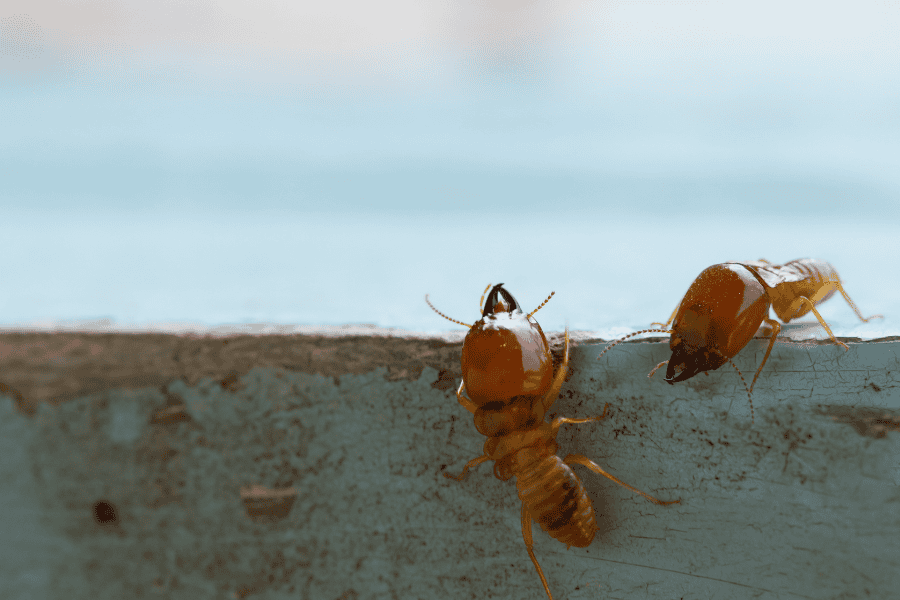
Termites are one of the most destructive pests, capable of causing significant damage to commercial properties. Their ability to silently infiltrate and compromise the structural integrity of buildings makes them a serious threat. Effective termite control is essential to protect your investment and ensure the safety of your property. Explore the importance of termite control for your business, the types of termite infestations, and the best strategies for effective termite management.
Termites can cause extensive damage before their presence is even detected. They feed on wood and other cellulose materials, weakening the structure of buildings and potentially leading to costly repairs. For commercial properties, this not only affects physical integrity but also can disrupt business operations and impact your reputation.
Regular termite inspections and proactive control measures are crucial in preventing infestations and mitigating damage. By understanding the signs of termite activity and implementing effective control strategies, you can protect your property and avoid the significant costs associated with termite damage.
There are several species of termites, but the most common ones that affect commercial properties are:
Detecting termite activity early is critical for effective control. Here are some common signs to watch for:
While DIY methods can offer temporary relief, professional pest control services provide comprehensive and long-term solutions. A qualified commercial pest control company can:
Effective termite control is essential for safeguarding your commercial property from the destructive impact of these pests. By understanding the types of termite infestations, recognizing signs of activity, and implementing comprehensive control strategies, you can protect your investment and maintain a safe, functional property. Be sure to call a pest management team near you for a free, personalized, no-obligation quote!

Mosquitoes are not only nuisance pests, but also pose a potential threat to businesses, especially those in outdoor or hospitality sectors. While the annoyance of mosquito bites is well-known, the health risks they pose and the negative impact on customer experience and business reputation are often underestimated. Continue reading to discover the reasons why mosquito control for business is important.
Mosquitoes are vectors for various diseases, including West Nile Virus, Zika virus, dengue fever, and malaria. Not attempting to control mosquito populations on your properties can expose your customers and employees to these health risks – leading to a poor reputation. Mosquito bites can lead to discomfort, allergic reactions, and in severe cases, transmission of diseases. Putting a mosquito reduction program into place can demonstrate a commitment to the well-being of both customers and your team.
If your business relies on outdoor settings, such as restaurants, wedding venues, or recreational facilities, then mosquitoes can significantly detract from the customer experience. Nothing ruins a pleasant outdoor experience more than swarms of mosquitoes. By proactively addressing mosquito infestations through professional mosquito control measures, you create a more enjoyable experience for your customers.
Even if you take preventative measures, mosquitoes can still become a nuisance – putting your customers and teammates at risk. Be sure to call a pest management team near you for a free, personalized, no-obligation quote for mosquito control for your business!

Integrated Pest Management (IPM) might sound like something that’s reserved for large agricultural operations or sprawling industrial complexes, but IPM can be just as vital for small businesses like yours. But why does it matter for small businesses and how can you implement a strategy that works for you? Let’s find out!
Unlike traditional pest control methods, IPM focuses on prevention, monitoring, and control with an emphasis on the use of multiple strategies to minimize pest populations. While minimizing risks to human health and the environment, key components of an IPM strategy include:
The consequences of ignoring pest problems can be just as severe for small businesses compared to large-scale operations. It’s just as essential to have an IPM strategy ready to protect your reputation and preserve the health and safety of your customers and employees. While the upfront investment of an IPM program can seem daunting, it can save you money in the long run by reducing the need for costly pest control treatments and potential damage to your property or inventory.
It doesn’t have to be complicated or costly to get an IPM strategy in place or begin prevention:
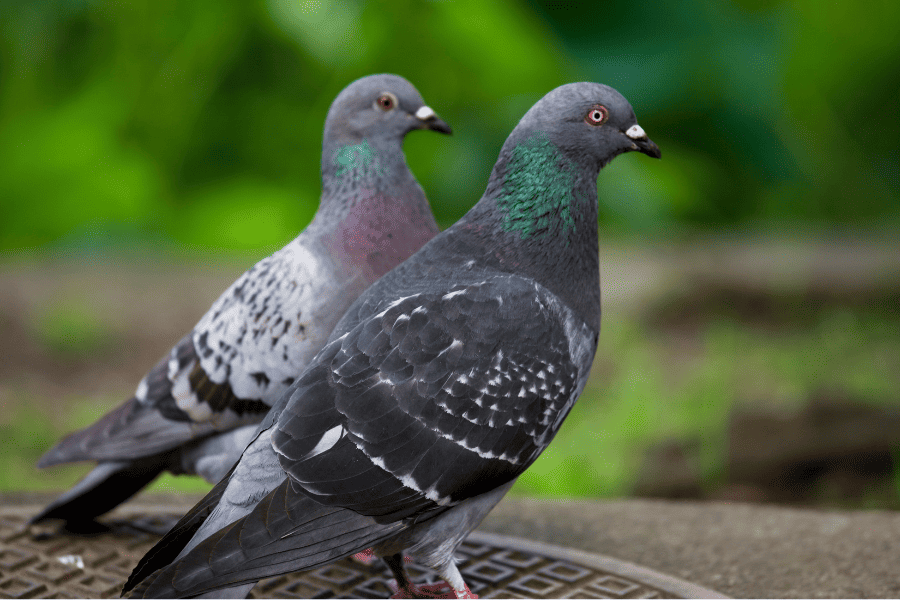
When left unaddressed, birds can wreak havoc on your business. As a business owner, protecting your reputation and bottom line is crucial to your success. We breakdown the dangers nuisance birds can be to your business if invaded and bird control methods you can place to deter them away.
Birds can cause many problems for your business and property. It’s crucial to understand the issues birds can bring so you can effectively deter them.
One of the best ways to deter these nuisance birds away is to create an environment that’s less attractive to them. Check out these humane preventative tips to keep birds from invading your business.
This method can act as a barrier to keep birds away from your building. The netting is often made of polypropylene and has stainless-steel hardware, which can be invisible to your customers’ eyes. It can best protect your business from smaller birds like swallows and sparrows. Bird netting can protect areas such as loading docks, rooftops, courtyards, storefront signs, balconies, open beam structures, and more.
Spikes are harmless deterrents that work great to deter birds, such as pigeons, away from a structure. Spikes are made from stainless steel or plastic and are placed upward to make it difficult for birds to land or make it uncomfortable to roost. Spikes can be placed on ledges, parapets, gutters, signs, and more.
Visual deterrents or decoys are a great tool to utilize around your business property to deter birds. Decoys that resemble owls or other predators can scare birds away. Other deterrents include holographic and reflective materials like optical gel, scare tape, and more. This method can be a great addition to other bird control methods you have already placed at your business.
If you’ve seen more bird activity than you’re comfortable with around your business, call your local professional wildlife control team for assistance. These bird experts will provide you with the best options to prevent the nuisance birds, deter them from your property, and control them to avoid a future bird infestation.
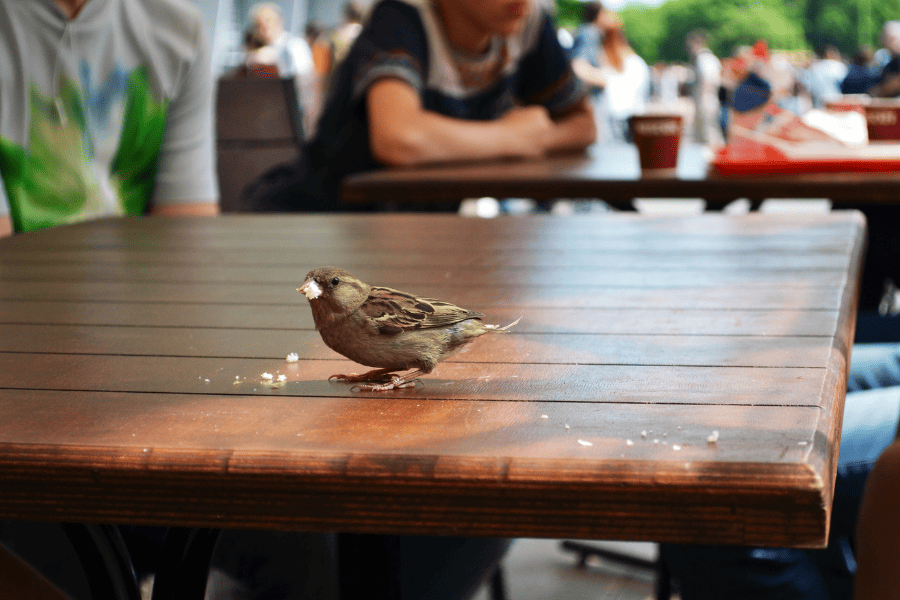
As much as birds are necessary, they can become a nuisance once they begin invading and damaging your business property and causing health concerns for your customers and employees. Whether it’s a restaurant, warehouse, commercial building, or store, these wildlife creatures can threaten your business’s bottom line. One of the best bird control methods to keep these birds from invading your business property is to create an undesirable environment for them. If you’re experiencing an influx of bird activity, there are several methods you can utilize to safely deter them from your business.
Create an environment less inciting to birds by removing limbs and branches from your business property. Additionally, look to routinely trim any surrounding trees around your property and if you have a lawn keep it mowed.
Consider mounting a plastic hawk or owl decoy on the roof of your building to scare nuisance birds away. Bird spikes and optical gel are another great tool to place on top of the building to encourage birds to perch and nest elsewhere.
Many birds are known to create nests around or under HVAC units because of the availability of water and shelter. To avoid this, consider netting or blocking off the area around your HVAC unit. If larger areas need excluding, it’s best to contact your local pest management company for assistance.
Birds will continue to visit your property if there’s access to food sources. It’s crucial to make food and water sources inaccessible as much as possible by promptly removing all food debris and standing water. Likewise, discourage customers from feeding birds if they happen to land around your business.
There are state rules and regulations on controlling birds from properties, so it’s best to contact your local wildlife control company to assist with any bird nuisance. These bird control professionals will provide you with a thorough inspection of your business and recommend the best methods to remove and prevent these birds from your property in the future.